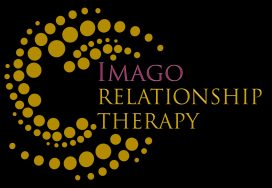 One of the biggest challenges that recovering people deal with are relationships.
One of the biggest challenges that recovering people deal with are relationships.
It is important to realize that building a relationship in recovery is a difficult and complex process. Almost a fault, I hear people oversimplifying relationship problems by using slogans to instruct recovering people about recovery and relationships. Slogans like “Turn it Over!” “It gets better with time” or “Behind every skirt is a slip.” What these slogans say to recovering people is that if they focus on sobriety, their intimate life will improve. This is inaccurate and harmful.
Over the course of more than two decades as a therapist, thirty years of sobriety and an eleven-year marriage, I have concluded that such platitudes are not sufficient to deal with the complex problems encountered by the average recovering person. Many alcoholics and addicts relapse because of relationships!! What this says to me is that more sound and informative advice is necessary. I have learned this lesson the hard way, when working with relapse-prone alcoholics.
Here’s the deal: No matter how perfect a recovering couple’s relationship appears to be or how well their individuals programs appear to be going, when you look beneath the surface, they still have relationship problems. But that doesn’t necessarily mean the end of their relationship.
No matter how effective your individual program of recovery, without accurate information about relationship building and transforming, your relationship probably will not get much better.
Timing in Recovery
The time is right to build a partnership when both persons are ready. All recovering people—whether alcoholics, addicts or co-dependents—pass through progressive periods of recovery. The periods are as follows:
In periods one and two known as pre-treatment and stabilization, the relationship suffers from damage done by addiction. In the third period, early recovery, which is the acceptance and non-chemical period, the recovering person must focus attention on staying clean and sober, and the spouse/recovering co-dependent must learn to manage harmful emotions, such as rage and shame, and become less compulsive (overeating, overworking, etc.) and more socially involved with others. When both persons reach the fourth period, middle recovery or balanced living, some progress can be made toward a stabilizing partnership because the couple can focus on learning new relationship skills.
However, both must shift their attention away from their addiction and towards their own welfare. When this happens, problems may seem to get worse instead of better. But as both persons become less and less dominated by their disease they can communicate more openly and move closer together through mutual understanding. The fifth period or late recovery, or the personality change, offers both people the opportunity to make significant personality and behavior changes as they deal with underlying issues.
What is a Partnership?
Those of us recovering from chemical dependence and/or alcoholism need more than a relationship; we need a partnership that, rather than being a threat to our sobriety, is a source of strength; rather than being a constant cause of emotional pain, is a secure foundation on which we can reach our fullest potential.
Partnership is a sense of “us-ness:” not me or you as separate individuals, but us. Building a partnership is founded on mutual effort.
No matter how eager we are to solve the glaring relationship problems and reach a point where partnership can develop, timing has to be right for both of you. Perhaps you can ask yourselves these questions:
- What period of recovery am I in?
- What period of recovery is my spouse/ significant other in?
- Are both of us ready to work on the relationship problems?
- Are we ready to examine early childhood issues and own destructive patterns to uncover the real barriers to communication and intimacy?
Are you ready to let the miracle of recovery work in your life and your relationship? Contact me for a consultation.
Loving in Recovery,
Paula M. Smith, M.Div., M.A., MFT | paulasmith@post.harvard.edu | 401-782-7899
Certified Imago Therapist | Couples Transformationist |

*Source: Miller, Merline, and Gorski Terrence, T. (1982). Family Recovery: Growing Beyond Addiction




